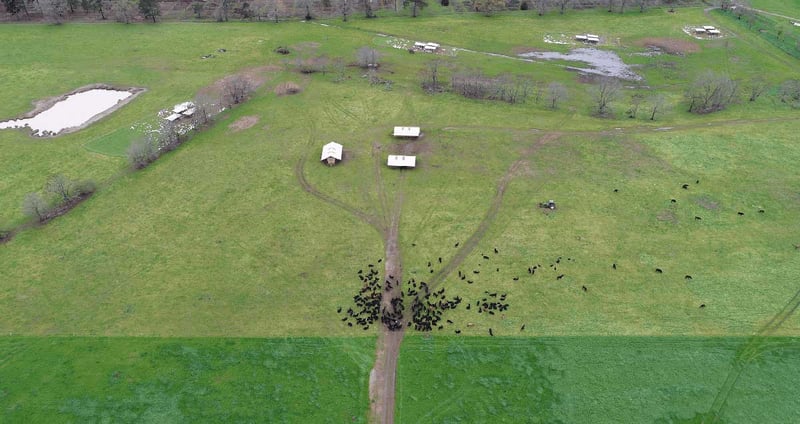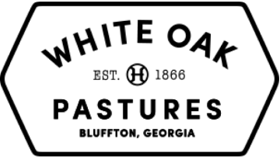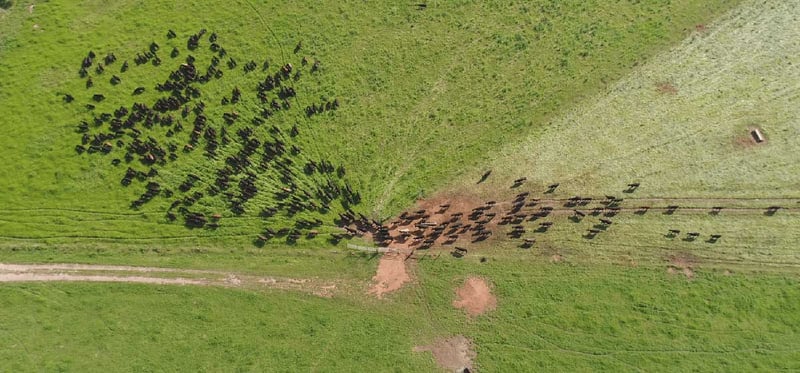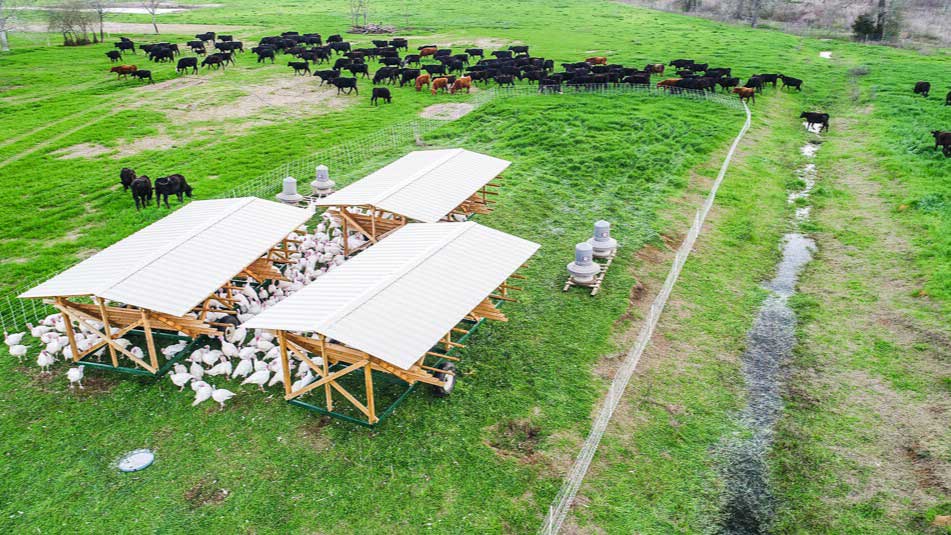
While speaking at a recent summit, Will Harris got a lot of attention when he told the audience,
“Some of the worst regenerative farm practices I’ve ever seen were on industrial organic, USDA Certified Organic, production farms.”
The “organic” label still holds power for many people, but more and more conscious consumers are asking, “is organic food really organic?”. The answer is not as simple as you may think.
At White Oak Pastures, we receive queries like the one below frequently:
“I had some questions about organic status. I noticed that you have some certifications on your meats but not organic, which you have for vegetables. How should I explain your rationale for not pursuing organic certification for the meats to people who have questions about it?”
Is organic better for the environment?
Sara Doshier, our Customer Service Manager, was the first to respond, citing the loophole for “Certified Organic” animals that are still raised in factory-farm Confined Animal Feedlot Operations (CAFO).
“The USDA has its own standards for organic animal production. We do not like USDA’s definition of ‘organic’ principally because it allows the confinement feeding of corn. They just require it to be organic corn.
We feel that White Oak Pastures goes far beyond the USDA certified organic standards with our grassfed beef and lamb. Our animals live the most natural life possible. Our poultry and swine are offered a non-GMO supplemental feed as an option in addition to their natural diet. Our ruminants are only supplemented with grass hay.”
Organic vs Regenerative
White Oak Pastures also practices regenerative agriculture using animal impact—and USDA Organic certification isn’t always compatible with regenerative land management. Will Harris, the fifth-generation owner of White Oak Pastures, added his take:
I would like to explain a little more about our feelings on USDA Certified Organic certification.
First off, a large portion of our land is USDA Certified Organic. I got that certification on the land that has been in my family for generations, and I could do so by simply paying the certification fees. We had not used chemical fertilizers, pesticides, or GMOs on this land for 25 years.
I have long understood that the USDA's organic standard was very weak. It is.
This standard was originally a pretty good vegetable standard (in the original Organic Foods Production Act of 1990). Sadly, like almost all bureaucratic functions, the crop production element of the program has since been co-opted and weakened.
However, the livestock side was poorly done from its very inception. I don't think that there was a professional livestock producer in the room when Certified Organic was thought out.
- Organic has never supported allowing animals the opportunity to express instinctive behavior.
- Organic has never encouraged the regeneration of degraded land.
- Organic has never supported impoverished rural communities.
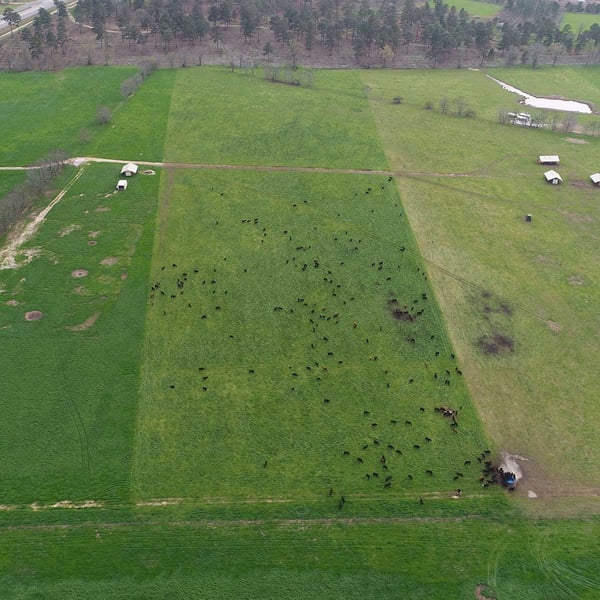
Cattle moving across our pastures, regenerating land section by section.
We are growing our farm, and we try to add a new piece of land every year. Most of this is degraded cropland that has had recent and continuous applications of chemical fertilizers and pesticides.
Under the USDA standard, I am not allowed to graze certified organic animals on this newly-acquired land. I am required to wait three years to certify this newly-acquired land. However, I desperately need the animal impact during this early three-year healing period to regenerate the land.
I wish that all consumers understood what a horribly weak standard USDA Certified Organic is. In addition to being a “lowest common denominator” animal standard, it is not outcome-based. Critically, trying to gain organic certification takes away my best land regeneration tool: animal impact.
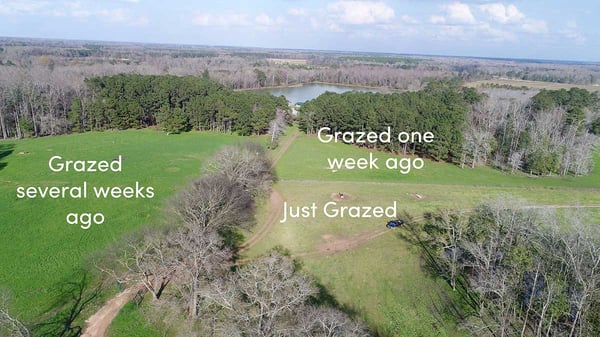
Land regeneration is a core value on our farm, and we view animal impact on all of our land to be essential for the process. And that’s not just our opinion: a third-party study has shown that our land management practices sequester more carbon in our soil than our cows emit during their lifetimes.
Dangers of Organic
According to the Center for Food Safety,
“In recent years, large hydroponic operations — most of which grow produce inside sterile buildings with artificial lights and no soil, relying solely on “nutrient solutions” — have been allowed to market their produce as ‘Organic’...
Hydroponic producers are getting the benefit of the Certified Organic label without actually doing anything to improve the soil, which undermines everything the Organic standards sought to achieve in the first place, diluting the meaning of the organic label while putting all the organic farmers who are contributing to soil health at a major reputational and economic disadvantage.”
Corporate greenwashing claims, like those about organic and regenerative practices, mislead the consumer and hurt the producers who actually walk the walk.
![]()
Our land stewardship is based on our values, not labels
Rather than comply with the diluted organic label, at White Oak Pastures we choose to do what we believe is best for our land, livestock, and community. We are one of 23 Global Savory Hubs, putting regenerative grazing practices to work on our 3,000-acre farm.
We also participate in the Savory Institute’s Ecological Outcome Verification (EOV) Program, designed to allow farms that are practicing, or are beginning to practice, regenerative agriculture techniques to monitor the progress in transitionary stages of their pastures. As opposed to a watered-down list of acceptable “organic” inputs, EOV is an outcome-based certification that requires accountability for land regeneration and measures progress.
At White Oak Pastures, we believe that farming must not only be sustainable; it has to truly be regenerative. This is the right way for the sake of our animals, our environment, and for the people who eat our products. Our commitment to stewardship of our farm is a core value of our family and our business, and it goes well beyond certifications.
